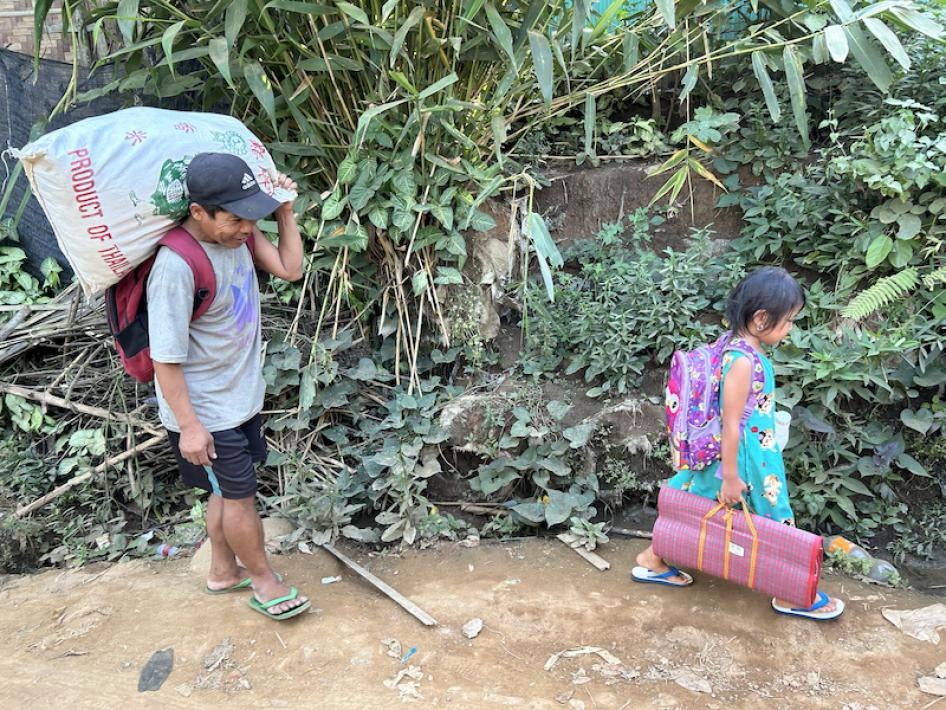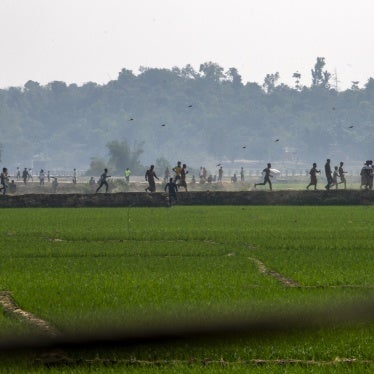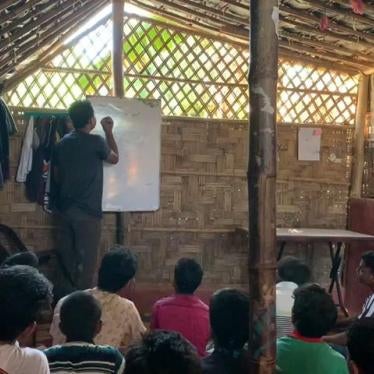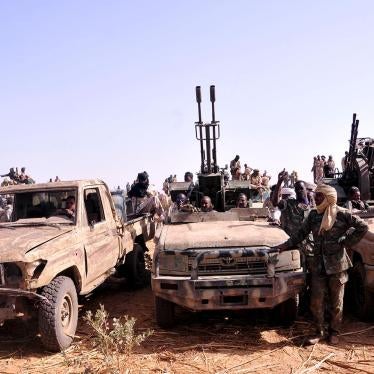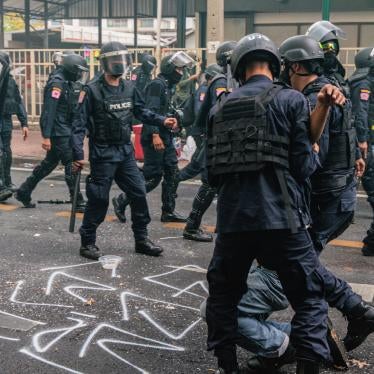(Bangkok) – Thailand’s government has pushed back thousands of Myanmar refugees at the border, putting their lives at risk in Myanmar, Human Rights Watch said today. In late October 2023, the Thai military began forcibly returning refugees who had been sheltering in border areas to Myanmar’s Karenni State. Many soon returned to Thailand, fearful of being trapped or targeted in renewed clashes in southeastern Myanmar.
“The Thai authorities should stop pushing back recent Myanmar refugees and allow them to seek protection in Thailand,” said Elaine Pearson, Asia director at Human Rights Watch. “The return of many of these refugees to Thailand just days after being pushed back indicates their fear for their safety in Myanmar.”
Thailand has sheltered about 90,000 refugees from Myanmar across nine refugee camps since the mid-1980s. After the February 2021 coup in Myanmar, at least 45,000 additional Myanmar refugees fled to Thailand. While the Thai government has allowed these new arrivals to stay in informal temporary shelters near the border, it has also intermittently pushed them back. None of these new arrivals are permitted to enter existing refugee camps and Thai officials place strict restrictions on their movement and access to humanitarian aid and services.
In July, about 9,000 Myanmar refugees sought safety in Thailand’s Mae Hong Son district due to frequent airstrikes in Karenni State. Thai authorities initially permitted them to stay in the informal temporary shelters.
On October 21, the Thai military verbally ordered the refugees to return to Myanmar within two weeks. After the order, the shelters where they had been living emptied as people walked back across the border into Karenni State, a journey that takes four to five days. Many went to Doh Noh Ku, where there is a settlement for internally displaced people.
Pushbacks were still occurring on October 27, when a coalition of armed ethnic and resistance groups began an offensive against the Myanmar military in northern Shan State. Opposition forces elsewhere in Myanmar then also carried out attacks against the military, which responded with airstrikes, including in Karenni State.
By November 27, more than 2,387 Myanmar people had again fled Myanmar, crossing back into Thailand’s Mae Hong Son district.
People who had just returned to a temporary shelter in Mae Hong Son district said that Myanmar military jets flew over the Doh Noh Ku camp before carrying out airstrikes on November 14 and 15. They said at least three bombs struck inside the camp, but that most people had already fled the camp again by that time.
“I had just reached the area outside Doh Noh Ku after walking five days with my family from here [in Thailand],” said a 52-year-old woman. “We didn’t go into the camp, but we watched the planes from afar. When they started dropping bombs, we ran back straight away…. I’m so scared, I get scared at the sound of thunder now.”
Sources on the ground said that the Thai military maintained that these new refugees had been in Thailand for more than three months when their stay in Thailand should be temporary. Officials also said there had been no recent armed clashes on the border so these people could return to Myanmar. Finally, Thai authorities claimed they were straining services meant for refugees in established camps.
The multiple and forced displacements, and lack of security or access to humanitarian aid is exacerbating the strain on these already marginalized communities, Human Rights Watch said.
“I’ve fled at least seven times since leaving my home earlier in the year because of the airstrikes,” said a 45-year-old woman. “You run to one place because you think it’s safe but nowhere is safe.”
Since the 2021 coup, the Myanmar junta has carried out a nationwide campaign of mass killings, torture, arbitrary arrests, and indiscriminate attacks that amount to crimes against humanity and war crimes. More than two million people have been internally displaced and more than 95,000 refugees have fled to neighboring countries.
Thailand should facilitate cross-border aid to internally displaced people in Myanmar and enable increased humanitarian aid to refugees in temporary shelters in Mae Hong Son district and other areas along the border. Thailand should also provide protection and support to all refugees, including permitting the United Nations High Commissioner for Refugees (UNHCR) to undertake refugee status determination.
Mass pushbacks, coerced or otherwise, may amount to a breach of Thailand’s obligations as a party to the UN Convention Against Torture and violate the customary international law principle prohibiting refoulement, the forcible return of anyone to a place where they would face a genuine risk of persecution, torture, or other ill-treatment, or a threat to their life.
“The Thai government should permit newly arrived Myanmar refugees access to humanitarian aid and help those seeking protection,” Pearson said. “Thai authorities shouldn’t push back refugees facing grave risk in Myanmar.”
